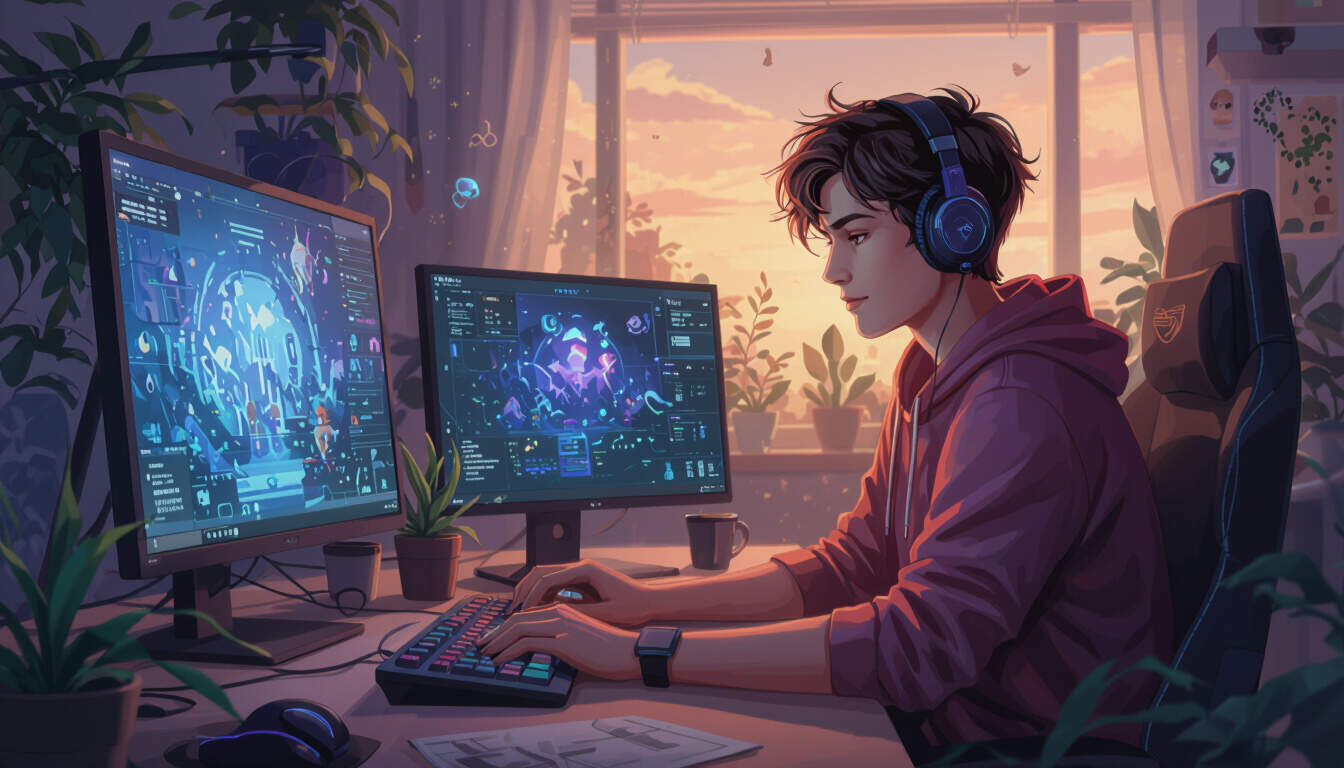Reducing Cognitive Load in Gaming for Everyday Efficiency
 by Max Miller
by Max Miller
Explore how gaming can overload the mind and discover simple strategies to lighten the mental burden. This article offers practical advice for students and professionals to enhance focus and productivity through effective cognitive offloading techniques.

Cognitive load often builds up during gaming sessions, making it hard to stay focused and enjoy the experience. In gaming, this refers to the mental effort required to process information, solve problems, and make decisions quickly. For students and professionals, managing this can lead to better performance in daily tasks.
One way to address cognitive load is by simplifying controls. Players can benefit from using customizable settings that make interfaces easier to handle. For instance, remapping keys or adjusting sensitivity can reduce the strain on working memory. cognitive load decreases when players adapt their setup to personal preferences.
Another approach involves breaking down complex games into smaller segments. Many games have missions or levels that can be tackled one at a time. This method helps in avoiding overwhelm and allows for rest periods. By doing so, individuals can maintain their energy levels throughout longer sessions.
Tools like automation features in games play a key role. Some games offer macros or auto-functions that handle repetitive actions. This frees up mental space for more strategic thinking. Using these features means less mental effort is spent on routine tasks.
Organization of game elements is also crucial. Keeping inventory systems tidy and using quick-access menus can streamline gameplay. A cluttered interface adds to the mental burden, so regular tidying helps keep things clear.
Practical Tips for Offloading in Daily Life
For those integrating gaming into their routines, applying offloading techniques outside of play can be helpful. Start with note-taking during sessions to jot down key strategies or reminders. This externalizes thoughts and reduces the need to remember everything mentally.
Physical aids like planners or apps can track progress in games and real-life tasks. For example, setting reminders for breaks ensures balanced playtime. gaming sessions become more enjoyable when paired with scheduled pauses.
Collaboration with others offers another layer of support. Playing with friends or joining communities allows for shared knowledge. Discussing strategies online can distribute the cognitive effort, making problem-solving a group activity.
Mindful practices such as deep breathing before starting a game can prepare the mind. Taking a few moments to relax helps in entering a focused state without immediate pressure.
In professional settings, the skills learned from offloading in gaming transfer well. For instance, project management tools mirror inventory systems in games. By applying similar organization methods, professionals can handle workloads more effectively.
Students might find that gaming strategies aid in studying. Just as games require focused bursts, study sessions can be structured with short, intense periods followed by breaks. This technique, often called the Pomodoro method in productivity circles, aligns with offloading principles.
Visual cues in games, like color-coded maps, assist in quick decision-making. In everyday life, using color-coded notes or folders can achieve the same effect. This visual offloading reduces the cognitive demand for recalling information.
Adopting a routine for reflection after gaming is beneficial. Reviewing what worked and what didn't helps in refining approaches for future sessions. Over time, this builds habits that minimize mental overload.
For parents or educators, encouraging young gamers to use these techniques fosters healthy habits. Guiding them to set limits and use aids ensures that gaming enhances rather than hinders development.
Benefits of Consistent Offloading
Regularly implementing these strategies leads to improved concentration and reduced fatigue. In gaming, this means higher scores and more fun, while in professional life, it translates to better task completion.
Ultimately, offloading cognitive load is about creating space for creativity and enjoyment. By incorporating these simple changes, anyone can achieve a more balanced approach to both gaming and daily responsibilities.
The key is consistency and experimentation. Trying out different methods will reveal what works best for each individual. With practice, the benefits extend beyond screens, promoting overall mental well-being.
